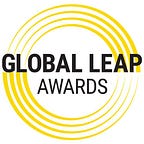By Monica Wambui and Hannah Blair, Senior Associates of CLASP, Co-Secretariat of the Efficiency for Access Coalition and Rebecca Rhodes, Project Manager for Consumer Protection, Circularity and Technology at GOGLA.
Lessons in Sustainable Off-Grid E-Waste Management
The rapid expansion of the off-grid solar sector over the past decade has been one of the most exciting trends in clean energy generation, granting energy access to hundreds of millions of people worldwide whilst reducing CO2 emissions and positively impacting lives and livelihoods.
Nevertheless, increasing access to solar products ultimately adds to the volume of e-waste in off- and weak-grid communities. There is a growing imperative to reduce the health and environmental risks from poor handling and disposal of e-waste, as well as safeguard the positive impact of off-grid energy services. Companies, investors and other stakeholders, such as donors and governments, are increasingly motivated to reduce solar e-waste.
The Global LEAP Awards Solar E-Waste Challenge
Over a 12-month implementation period, the inaugural Global LEAP Awards Solar E-Waste Challenge explored innovations in e-waste management across sub-Saharan Africa. The Challenge launched in 2019, making more than $1 million available with funding from UK Aid and USAID through the Transforming Energy Access (TEA) and Scaling Off-Grid Energy (SOGE) programmes respectively. One Challenge project was fully funded by Shell Foundation.
The eight Awardees — ENGIE Energy Access, WEEE Centre, Solibrium Solar, SunnyMoney, d.light, Enviroserve Rwanda, Hinckley Recycling and WeTu — piloted first-of-their-kind models to retrieve, treat and repair faulty and end-of-life off-grid solar products in five African countries. While the pilots demonstrated workable models for scale, the Awardees also experienced widespread systemic barriers to proper e-waste management on the continent.
To share these lessons with the wider sector, CLASP and GOGLA released in-depth case studies. The case studies are broken into four sections that explore the key themes of the Challenge projects:
- Access to Waste: Awareness Raising & Incentivisation
- Designing Effective Take-Back & Collection Models
- Encouraging Repair & Refurbishment
- Improving the Recycling Infrastructure in African Markets and Second-Life Battery Options.
Challenge Accomplishments
Through the Challenge, the projects expanded waste treatment facilities, purchased crucial equipment, explored repair and refurbishment possibilities, conducted consumer-awareness campaigns across a variety of platforms to reach more than six million people, and implemented a number of different e-waste take-back schemes.
Together, the projects collected more than 250,000kg of off-grid solar waste. Despite representing only a fraction of total e-waste forecast quantities, it is significant enough to identify important lessons about the design and implementation of e-waste management programmes.
Some projects also focused on second-life battery use. Hinckley in Nigeria procured the first lithium battery treatment equipment on the continent. Altogether, the Awardees collected over 240,000 Li-ion batteries to test. Of the tested cells, they found that 53% were reusable with as high as 90% of the original capacity. These results present new opportunities for extended product lifespan, new income streams for companies, as well as reduce the need for manufacturing of new products. The second round of the Solar E-Waste Challenge is focused on R&D around product lifespan, including second-life battery applications.
The report identifies good practice that emerged from these projects and aims to inform future efforts to address growing amounts of e-waste and advance the state of practice in the sector. In examining and analysing the experiences of these eight companies, we gleaned data and insights for others to replicate their successes and avoid some of their pitfalls.
Key Insights & Lessons
High costs remain a significant barrier to improving e-waste management practices in the sector. The cost of solar e-waste can be broken into access, transport, treatment and where necessary, overseas shipping. Using data from the Challenge projects, we can estimate that an entry level solar lantern has a negative value (therefore, a cost) of US$-1.36/unit at EoL, while an SHS with a lead acid battery has a positive value of US$1.01/unit.
Other barriers include insufficient e-waste infrastructure and service providers in Africa, the absence of recycling facilities that meet minimum standards and the difficulty of finding the spare parts necessary to repair or refurbish non-functioning products.
Still, the imperatives for business action on e-waste are compelling. Apart from the tangible risks it poses to consumers and the environment, unmanaged e-waste also has the potential to damage the reputation of individual solar companies and the industry as a whole. Through the Challenge, we found that addressing the problem through consumer outreach and e-waste collection schemes can actually boost brand recognition and improve consumer retention. It is in the interests of both investors and governments to encourage e-waste management practices and support related innovations where possible.
Further, e-waste management presents a number of opportunities for improvements in the sector, such as the adoption of new technologies and circular business models. It also creates opportunities to collaborate with the informal sector, thereby building trust within communities and providing a boost to local value chains and jobs.
One of the most important conclusions that can be drawn from the Challenge is that for now, the cost and complexity of significantly reducing e-waste remain too heavy a burden for an industry and customer-base reliant on affordability.
There is a growing need for collaborative action and targeted investment to reduce barriers common to overall e-waste management, de-risk innovations and ultimately improve the cost-effectiveness of circular business models.
Read the whole report.
